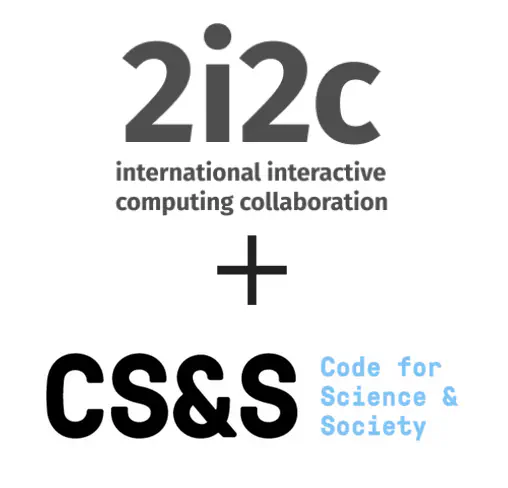2i2c launches next phase in partnership with CS&S

This post was originally written for the CS&S blog.
Code for Science & Society is thrilled to welcome the International Interactive Computing Collaboration (2i2c, for short) as a fiscally sponsored project! After spending a year incubating in the International Computer Science Institute, where 2i2c received critical startup support, 2i2c now joins our fiscally sponsored project program to launch their next phase. 2i2c develops and operates cloud infrastructure for interactive computing, with a focus on the Jupyter ecosystem and cloud-native workflows in research and education. They will build a cloud services model that respects a community’s Right to Replicate their infrastructure by providing transparent and customizable JupyterHub deployments on cloud infrastructure that utilize community-driven open source tools. They aim to use the resources generated from this service in order to support the communities that underlie this infrastructure. Read on for more about 2i2c’s mission and how CS&S will support their team and vision.
2i2c’s organizational mission is to develop and operate sustainable cloud services that provide interactive computing infrastructure with JupyterHub and an ecosystem of tools that support research and education. This model has been pioneered in the organizations that 2i2c’s co-founders have co-led for many years, including the Pangeo Project, the Syzygy Project, the Binder Project, and the UC Berkeley DataHub. These projects follow an “integrate, customize, and upstream” model. They integrate pre-existing open source tools, make necessary customizations to support their specific use-case, and make upstream contributions to extend the infrastructure beyond its current capabilities. This creates a virtuous cycle where tangible needs are met in research and education, while improvements are made to open source projects that benefit the broader community. 2i2c hopes to scale this model, and provide these JupyterHub-based cloud services available to the broader research and education community.
CS&S is particularly interested in pursuing the opportunity to work closely with 2i2c as their team explores how to build sustainable, ethical services that support open scholarship as well as open source communities. The model that 2i2c will develop is different in many ways from traditional grant-based development, or service-based business, because it depends on running community-led infrastructure that 2i2c contributes to, but does not control or own. Both CS&S and 2i2c believe that this model is an opportunity to build more distributed, community-led infrastructure and services, as well aligning a sustainability model with both open source communities and the scholarly community. We hope that this work will also provide experience that helps improve CS&S’s other initiatives in this space, including CS&S’s other fiscally sponsored projects and participants in the Digital Infrastructure Incubator program.
Achieving this mission will involve innovation at an infrastructure level, a business model level, and an open source community strategy level, and will be carried out over the coming years. 2i2c’s next steps are to run pilot JupyterHub infrastructure for select communities of practice in research and education, in order to better understand their needs and how these needs fit in with 2i2c’s developing sustainability model. They will also build infrastructure to deploy and customize a federation of JupyterHubs that are community-specific, and that run entirely on open source infrastructure.
If you believe that your community would benefit from a hub like this, please reach out to the 2i2c team, or join their mailing list. Stay tuned as 2i2c builds its sustainable, scalable, and community-driven platform for interactive computing in the cloud.
Thanks for reading! If you'd like to follow our work, join our mailing list or subscribe to our blog. You can read our community hub documentation or learn about membership.